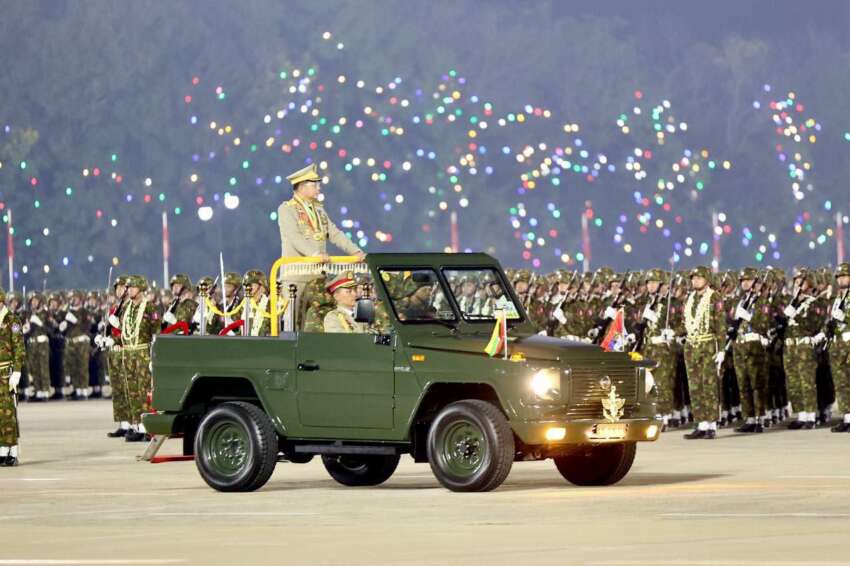
Min Aung Hlaing has enacted a new law concerning military secrets that affects soldiers, police, militia (Pyu Saw Htee), and civilians, with penalties including death sentence or life imprisonment for breaches. The law requires both current and former defense service personnel, including soldiers, police, and militia members, to maintain military secrets. According to Section 16 of the law, anyone found guilty of transferring any military secret to another person without proper authorization shall face either life imprisonment or death penalty. Similarly, those who attempt, aid, or conspire to violate any prohibition in the Military Secrets Protection Law will also face prosecution.
Military secrets are defined to include military strategies, training matters, technical information about military vessels, aircraft, vehicles, machinery, weapons, ammunition, military equipment, and related technologies, methods, manufacturing and installation techniques, and information. The law specifically prohibits the transfer of military secrets to unauthorized armed organizations, foreign governments, foreign military organizations, international security organizations, and private security service companies. The legislation aims to prevent and protect against such transfers of classified military information.
Current and former defense service personnel are prohibited from serving in foreign military organizations, governments, unauthorized armed groups, or international security organizations. Violations of these provisions can result in death penalty or life imprisonment. If former defense personnel wish to work in private security, they must obtain permission from the Ministry of Defense. The law’s broad scope encompasses various aspects of military information and imposes strict controls on its handling and dissemination.
According to a military source in Naypyidaw, the law is extremely broad and can be interpreted flexibly. Even photographing a military vehicle on the street and posting it on social media could be considered a breach of military secrets, potentially resulting in a death sentence. The source emphasized that the law not only applies to militia members but also to ordinary citizens, and any action related to the military could be prosecuted under this law. The legislation gives authorities wide-ranging powers to take action against anyone they deem to have violated military secrecy.
While in a democratic system, laws should be enacted by parliaments composed of elected representatives of the people, Min Aung Hlaing, who seized power through a military coup, is issuing laws at his discretion. Analysts note that this law appears designed to prevent documentation and disclosure of military activities, further tightening control over information related to military operations and activities. The broad and vague nature of the law’s provisions has raised concerns about its potential use as a tool for suppression and control of information flow regarding military affairs.



